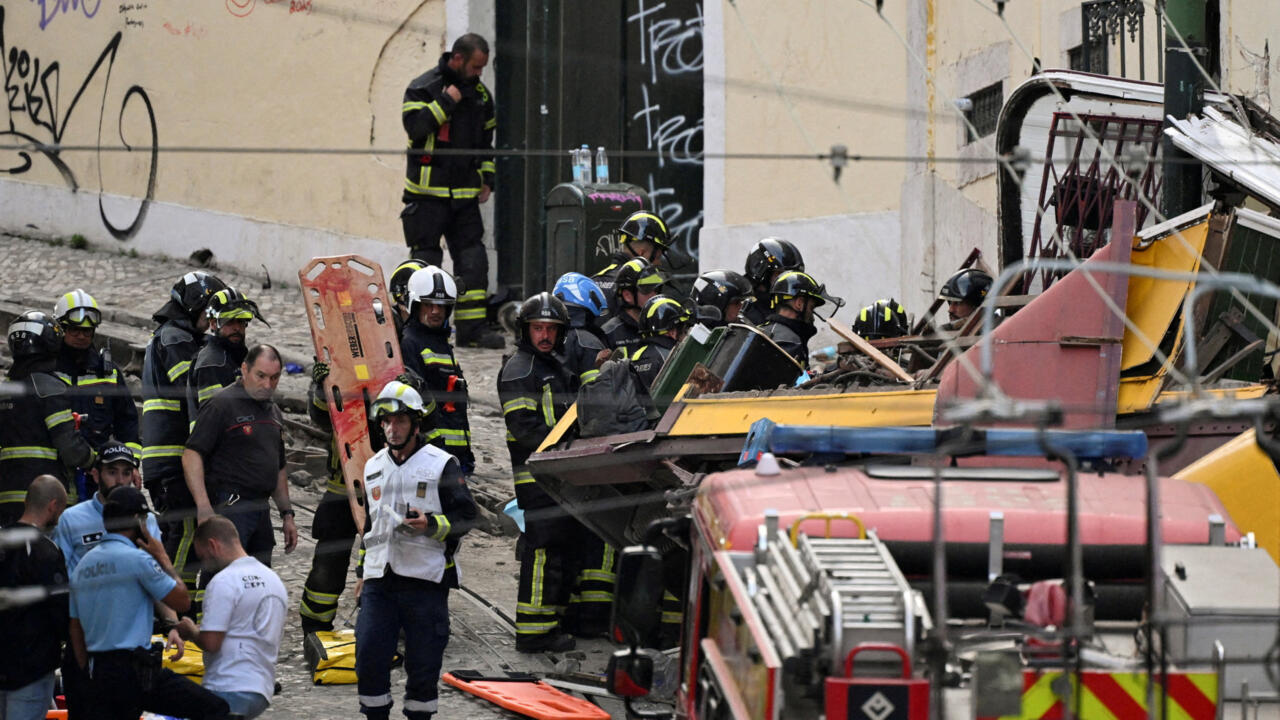Portugal observed a day of national mourning on Thursday after the death toll from the derailment of Lisbon’s historic Gloria funicular rose to 17, with 21 others injured.
The accident occurred on Wednesday evening near Liberty Avenue, one of the capital’s busiest tourist hubs, when the bright yellow funicular veered off its steep tracks and slammed into a building.
Emergency services confirmed that at least 11 foreigners were among the injured, including citizens of Germany, Spain, France, Italy, Switzerland, Canada, South Korea, Morocco, and Cape Verde.
According to authorities, 15 victims died on the spot — eight men and seven women — while two others succumbed to their injuries later.
Lisbon’s municipal civil protection spokeswoman, Margarida Castro, said the city has suspended operations of its three other funiculars to ensure safety compliance.
Germany’s foreign ministry said its embassy in Lisbon was assisting in the identification of victims, with reports suggesting that a German man was among the dead, while his wife remained in critical condition and their three-year-old child sustained minor injuries.
Footage from the scene showed rescue workers battling into the night as the mangled funicular lay toppled against a wall.
One eyewitness told SIC television that the train, carrying around 40 passengers, “struck the building with brutal force and collapsed like a cardboard box.”
Lisbon Mayor Carlos Moedas described the crash as “a tragedy that our city has never seen.” Prime Minister Luis Montenegro said the incident had “brought grief to families and dismay to the country,” while European Commission President Ursula von der Leyen offered condolences to the victims’ relatives.
Lisbon prosecutors have launched an investigation into the cause of the crash.
Read Also;
Tragedy in Abuja: Four Killed After Louts Hijack Vehicle, Cause Fatal Crash
Meanwhile, Pedro Bogas, head of Lisbon’s public transport operator Carris, insisted that all maintenance protocols had been followed. He explained that general maintenance is carried out every four years — the last in 2022 — with intermediate checks every two years, the most recent in 2024.
The Gloria funicular, one of Lisbon’s most iconic landmarks, first entered service in 1885 and was electrified in 1915. For more than a century, it has been a vital lifeline for residents and a major draw for tourists navigating Lisbon’s steep hills.




